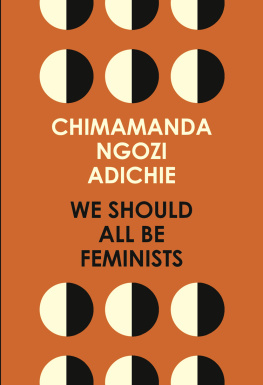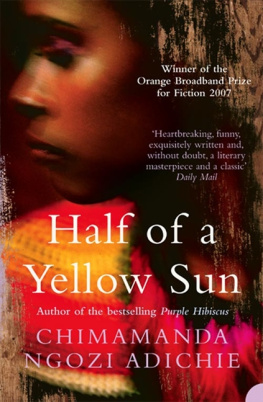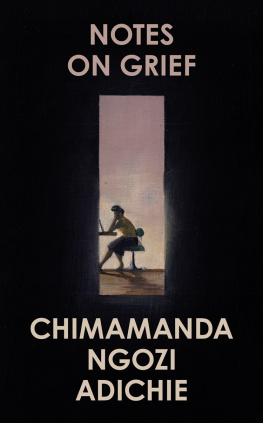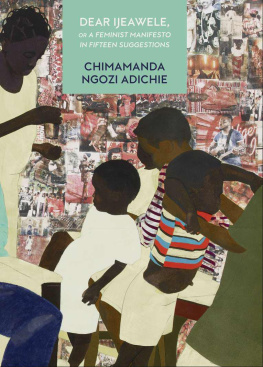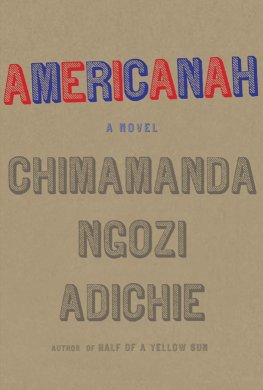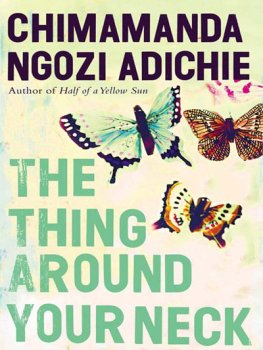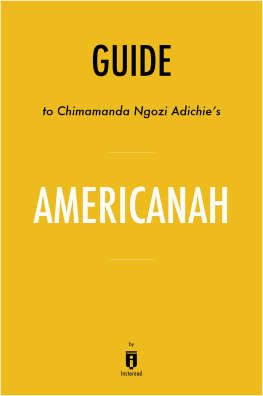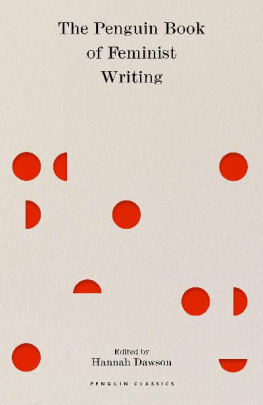This is a modified version of a talk I delivered in December 2012 at TEDxEuston, a yearly conference focused on Africa. Speakers from diverse fields deliver concise talks aimed at challenging and inspiring Africans and friends of Africa. I had spoken at a different TED conference a few years before, giving a talk titled The Danger of the Single Story about how stereotypes limit and shape our thinking, especially about Africa. It seems to me that the word feminist, and the idea of feminism itself, is also limited by stereotypes. When my brother Chuks and best friend Ike, both co-organizers of the TEDxEuston conference, insisted that I speak, I could not say no. I decided to speak about feminism because it is something I feel strongly about. I suspected that it might not be a very popular subject, but I hoped to start a necessary conversation. And so that evening as I stood onstage, I felt as though I was in the presence of family a kind and attentive audience, but one that might resist the subject of my talk. At the end, their standing ovation gave me hope.
Okoloma was one of my greatest childhood friends. He lived on my street and looked after me like a big brother: if I liked a boy, I would ask Okolomas opinion. Okoloma was funny and intelligent and wore cowboy boots that were pointy at the tips. In December 2005, in a plane crash in southern Nigeria, Okoloma died. It is still hard for me to put into words how I felt. Okoloma was a person I could argue with, laugh with and truly talk to. He was also the first person to call me a feminist.
I was about fourteen. We were in his house, arguing, both of us bristling with half-baked knowledge from the books we had read. I dont remember what this particular argument was about. But I remember that as I argued and argued, Okoloma looked at me and said, You know, youre a feminist.
It was not a compliment. I could tell from his tone the same tone with which a person would say, Youre a supporter of terrorism.
I did not know exactly what this word feminist meant. And I did not want Okoloma to know that I didnt know. So I brushed it aside and continued to argue. The first thing I planned to do when I got home was look up the word in the dictionary.

Now fast-forward to some years later.
In 2003, I wrote a novel called Purple Hibiscus, about a man who, among other things, beats his wife, and whose story doesnt end too well. While I was promoting the novel in Nigeria, a journalist, a nice, well-meaning man, told me he wanted to advise me. (Nigerians, as you might know, are very quick to give unsolicited advice.)
He told me that people were saying my novel was feminist, and his advice to me he was shaking his head sadly as he spoke was that I should never call myself a feminist, since feminists are women who are unhappy because they cannot find husbands.
So I decided to call myself a Happy Feminist.
Then an academic, a Nigerian woman, told me that feminism was not our culture, that feminism was un-African, and I was only calling myself a feminist because I had been influenced by Western books. (Which amused me, because much of my early reading was decidedly unfeminist: I must have read every single Mills & Boon romance published before I was sixteen. And each time I try to read those books called classic feminist texts, I get bored, and I struggle to finish them.)
Anyway, since feminism was un-African, I decided I would now call myself a Happy African Feminist. Then a dear friend told me that calling myself a feminist meant that I hated men. So I decided I would now be a Happy African Feminist Who Does Not Hate Men. At some point I was a Happy African Feminist Who Does Not Hate Men And Who Likes To Wear Lip Gloss And High Heels For Herself And Not For Men.
Of course much of this was tongue-in-cheek, but what it shows is how that word feminist is so heavy with baggage, negative baggage: you hate men, you hate bras, you hate African culture, you think women should always be in charge, you dont wear make-up, you dont shave, youre always angry, you dont have a sense of humour, you dont use deodorant.

Now heres a story from my childhood.
When I was in primary school in Nsukka, a university town in south-eastern Nigeria, my teacher said at the beginning of term that she would give the class a test and whoever got the highest score would be the class monitor. Class monitor was a big deal. If you were class monitor, you would write down the names of noise-makers each day, which was heady enough power on its own, but my teacher would also give you a cane to hold in your hand while you walked around and patrolled the class for noise-makers. Of course, you were not allowed to actually use the cane. But it was an exciting prospect for the nine-year-old me. I very much wanted to be class monitor. And I got the highest score on the test.
Then, to my surprise, my teacher said the monitor had to be a boy. She had forgotten to make that clear earlier; she assumed it was obvious. A boy had the second-highest score on the test. And he would be monitor.
What was even more interesting is that this boy was a sweet, gentle soul who had no interest in patrolling the class with a stick. While I was full of ambition to do so.
But I was female and he was male and he became class monitor.
I have never forgotten that incident.
If we do something over and over again, it becomes normal. If we see the same thing over and over again, it becomes normal. If only boys are made class monitor, then at some point we will all think, even if unconsciously, that the class monitor has to be a boy. If we keep seeing only men as heads of corporations, it starts to seem natural that only men should be heads of corporations.

I often make the mistake of thinking that something that is obvious to me is just as obvious to everyone else. Take my dear friend Louis, who is a brilliant, progressive man. We would have conversations and he would tell me, I dont see what you mean by things being different and harder for women. Maybe it was so in the past, but not now. Everything is fine now for women. I didnt understand how Louis could not see what seemed so evident.

